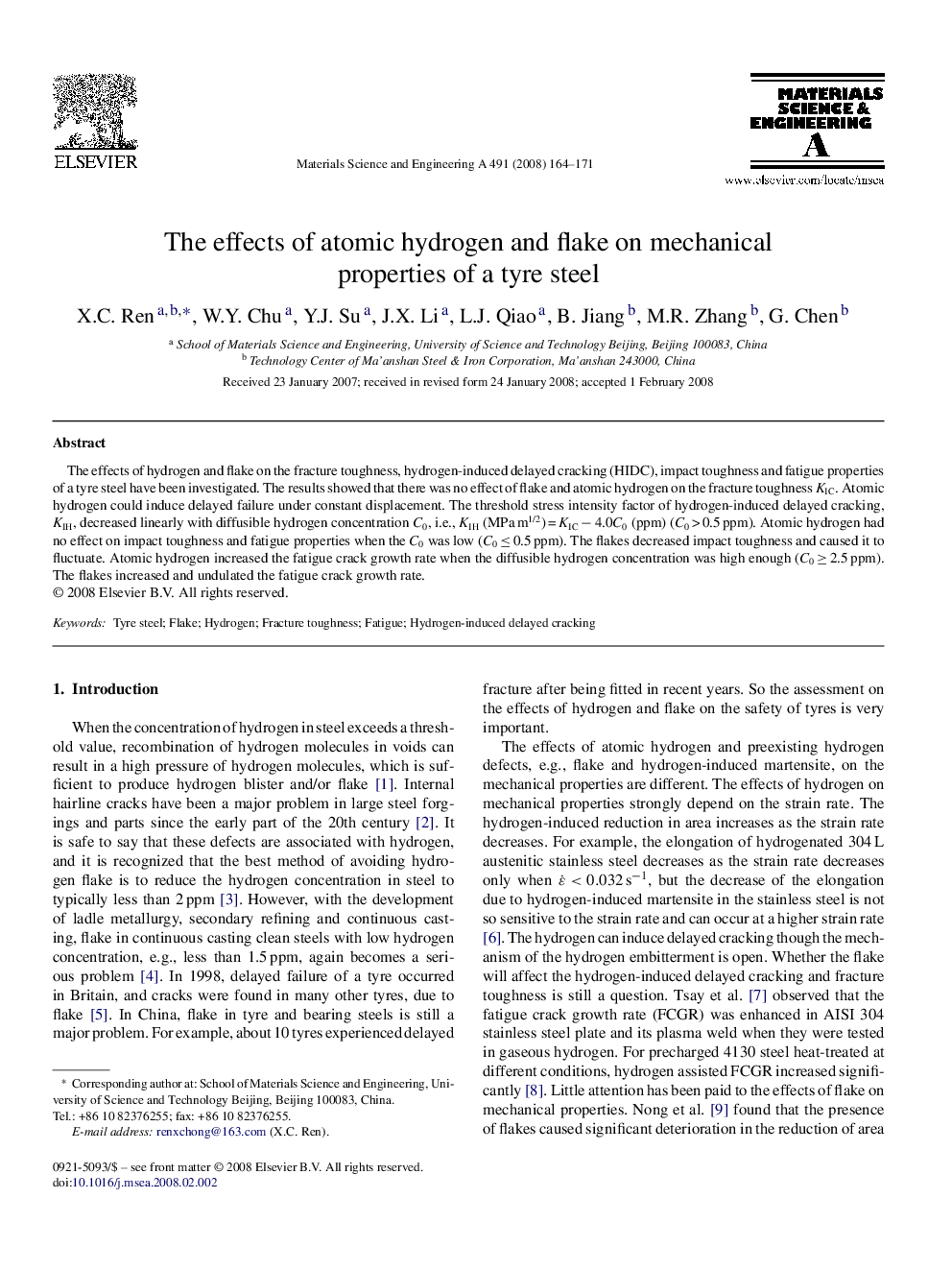| Article ID | Journal | Published Year | Pages | File Type |
|---|---|---|---|---|
| 1582035 | Materials Science and Engineering: A | 2008 | 8 Pages |
The effects of hydrogen and flake on the fracture toughness, hydrogen-induced delayed cracking (HIDC), impact toughness and fatigue properties of a tyre steel have been investigated. The results showed that there was no effect of flake and atomic hydrogen on the fracture toughness KIC. Atomic hydrogen could induce delayed failure under constant displacement. The threshold stress intensity factor of hydrogen-induced delayed cracking, KIH, decreased linearly with diffusible hydrogen concentration C0, i.e., KIH (MPa m1/2) = KIC − 4.0C0 (ppm) (C0 > 0.5 ppm). Atomic hydrogen had no effect on impact toughness and fatigue properties when the C0 was low (C0 ≤ 0.5 ppm). The flakes decreased impact toughness and caused it to fluctuate. Atomic hydrogen increased the fatigue crack growth rate when the diffusible hydrogen concentration was high enough (C0 ≥ 2.5 ppm). The flakes increased and undulated the fatigue crack growth rate.
